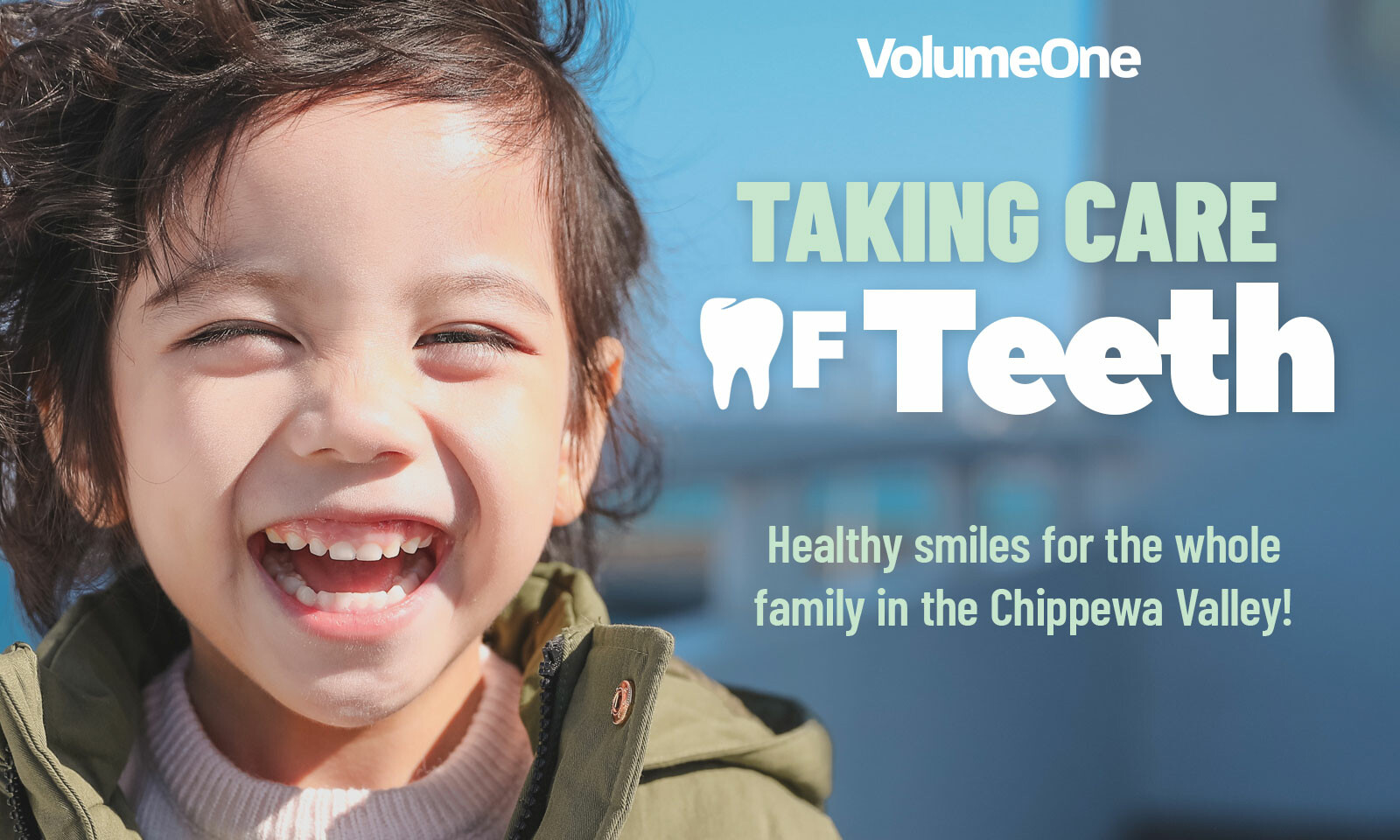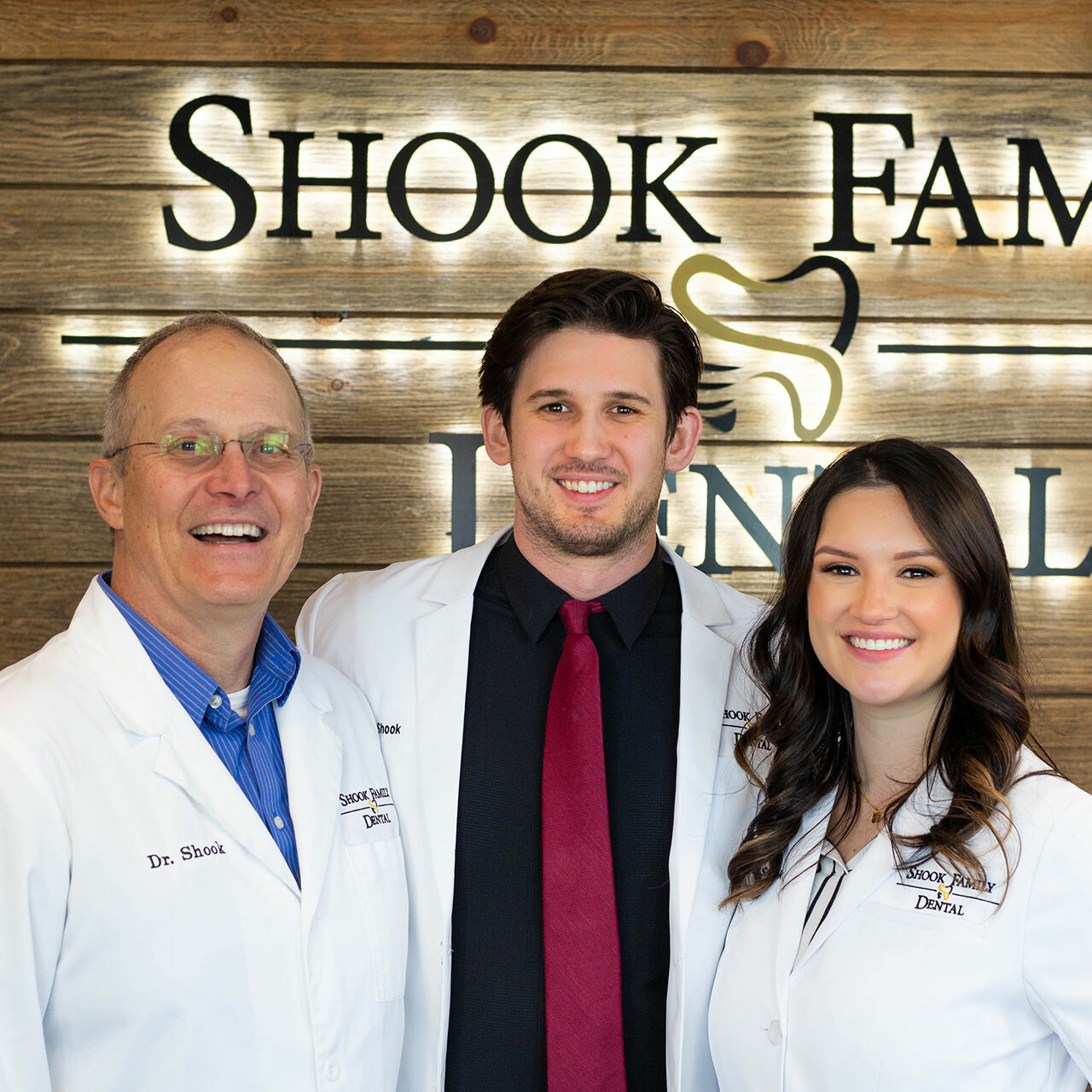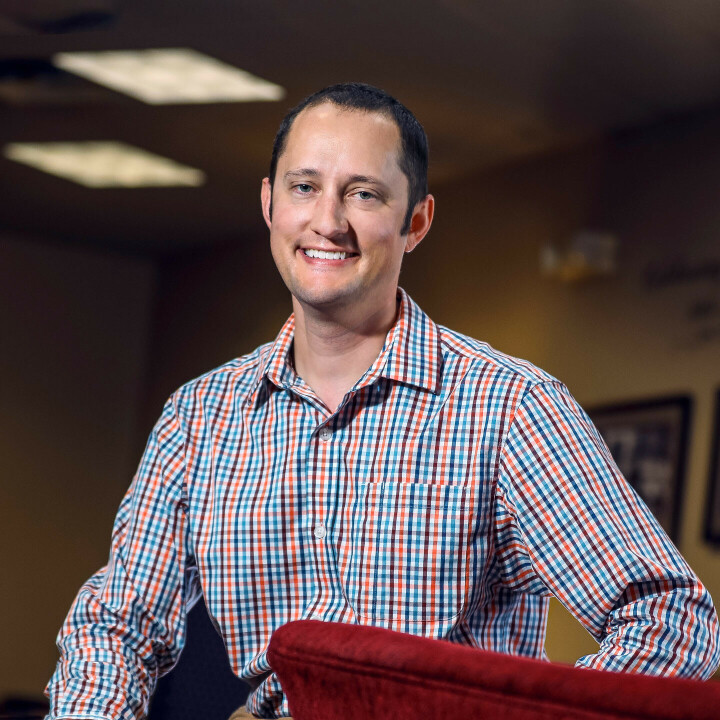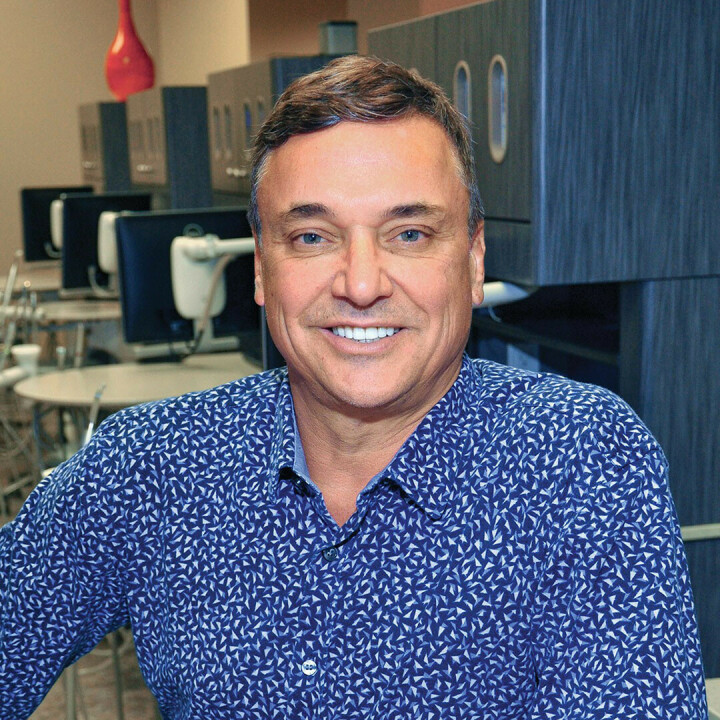Shook Family Dental
Creating a positive experience for those who avoid the dentist.
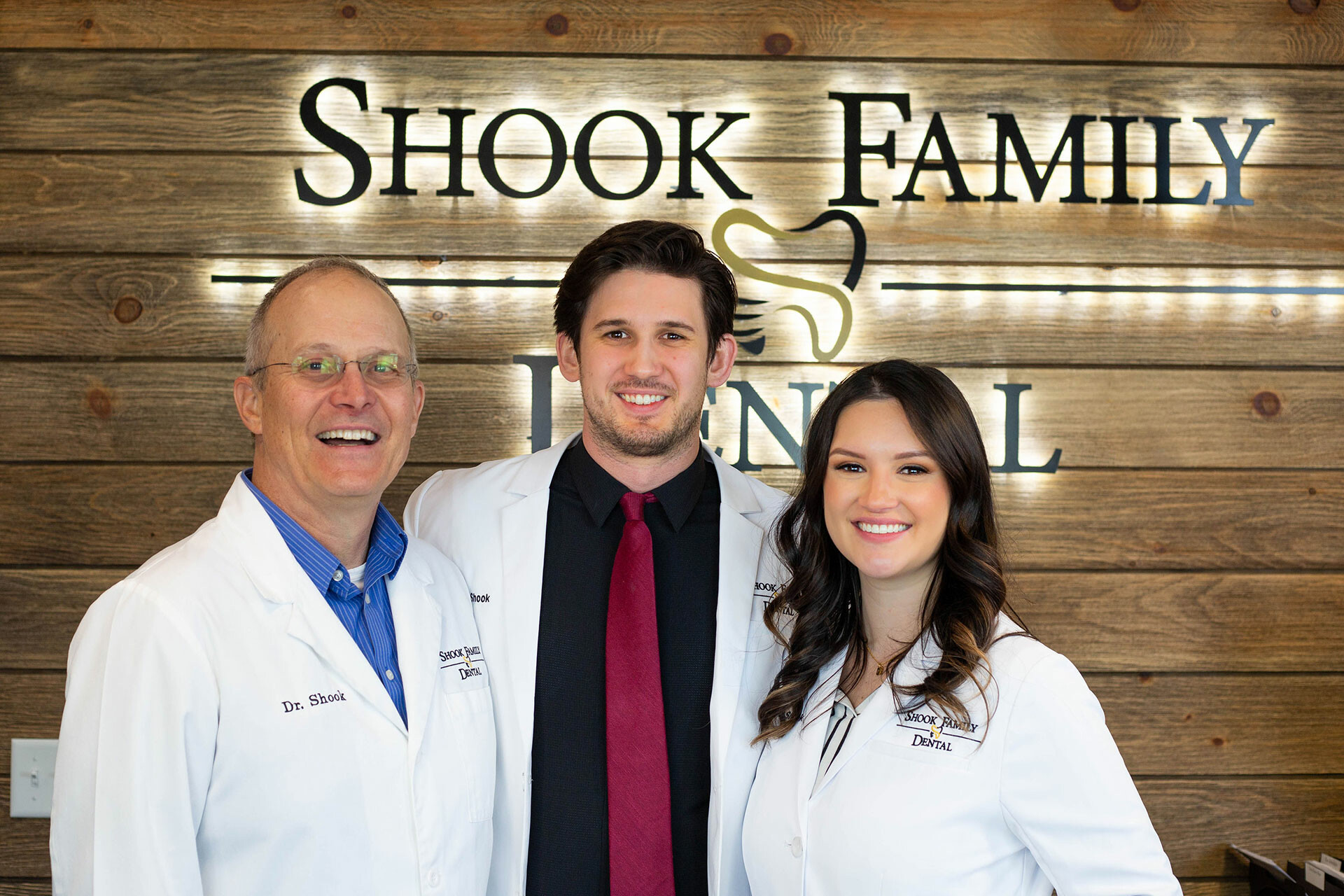
According to the National Library of Medicine, dental fear and anxiety (DFA) affects about 36% of the population, with an additional 12% of people with extreme dental fear. This fear leads to an avoidance of the dentist and can result in poor oral health.
The dentists at Shook Family Dental, husband and wife team Dr. John and Dr. Monica Shook along with Dr. John’s father, Dr. Randy Shook, see how this anxiety can affect people and their oral health all the time, which is why they are passionate about creating a safe and calming environment for everyone that comes through their doors.
Every new patient at Shook Family Dental gets a consultation with the hygienist or doctor they will be treated by, which includes an assessment of any DFA and how they can help you feel the most at ease.
“We understand that hyping yourself up to even sit in the chair is a really big deal for some people,” Dr. Monica said. “That’s totally valid. You have that need and we’re here to help you with it.”
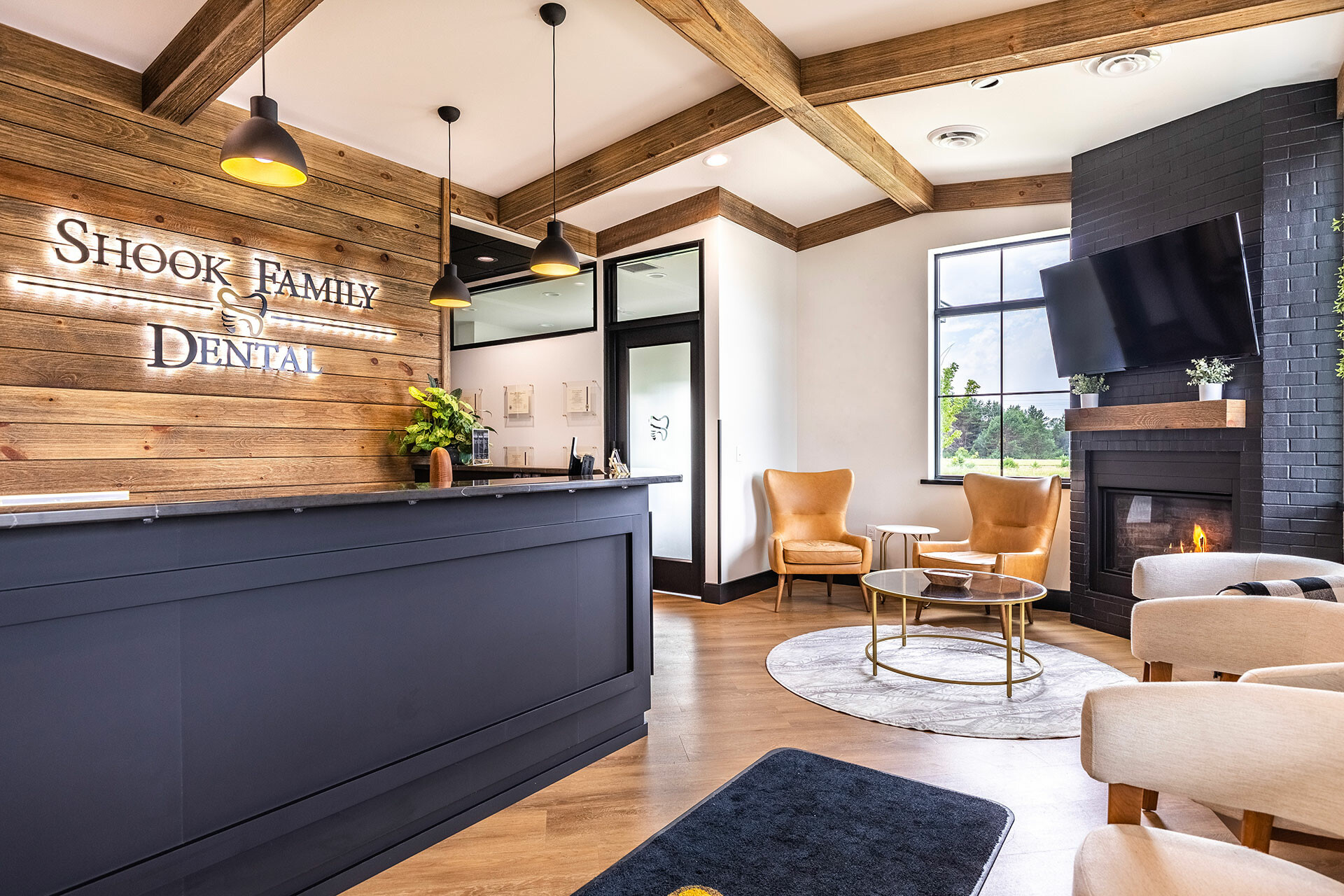
photo by Kleine Leonard Architectural Photography
For people that have come in with DFA, Shook Dental has headsets to block out any frightening noises, TVs on the walls and ceilings to play anything that may calm or distract you, play music or a podcast that will help you feel the most comfortable, they even have laughing gas for those who need to be sedated.
You can come into the office just to tour it and maybe sit in a chair without getting any dental work done, just so you can become more comfortable with your surroundings. Shook Family Dental also offers same-day crowns to save you time and worrying. They don’t use traditional impressions unless they absolutely have to which can take away a lot of physical trauma and anxiety.
Whether your fear comes from a physical trigger in the dental process or bad experiences in the past, the whole team at Shook will accommodate you so that you feel as safe and as calm as possible.
“We try to learn where the fear stems from to help alleviate it,” Dr. Monica said. “Maybe we don’t lean your chair back all the way, maybe we take breaks and breathers. Knowing you have control, knowing we take the breaks, knowing that if you raise your hand we stop immediately because we’re on your schedule. All of that can help put you at ease.”
People will often avoid the dentist altogether because of their anxieties, but both Dr. John and Dr. Monica say that putting off going to the dentist can actually continue to deepen your fear of going.
“I think it’s even more important to go to the dentist the more anxious you are,” Dr. Monica said. “You’re going to reinforce that dental anxiety the more you put things off until there is a problem because then every experience you have at the dentist will be an intervention or even a painful one.”
“A filling of a smaller cavity is way cheaper and way less traumatic than coming in with a swollen face because that small cavity got huge and now it’s painful,” Dr. John added.
This is crucial for children as well, they said, because reinforcing a positive experience at the dentist at a young age can help prevent future dental anxieties. The TVs in the office come in handy for this because, as Dr. John explained, “Lots of kids like watching shows and it’s amazing, they just zone out. It’s better than the nitrous.”
Another huge barrier to the dentist for a lot of people is the cost, especially for those who may not have dental insurance. Shook Family Dental has a membership program for those without insurance to try and keep the cost down as much as they can so that anyone can get the preventative care that they need.
No matter your fears or situation, the whole Shook Team is committed to making sure your experience is pleasant and calming.
“There’s not a culture of shaming people here for not coming to the dentist,” Dr. John said. “We understand that no one wants to come to the dentist. I’ve heard from so many people that they avoided the dentist because the last time they went they got lectured. We’re not going to lecture you. You’re here, and that’s the biggest thing you can do for your oral health.”
